INVITED SPEAKERS
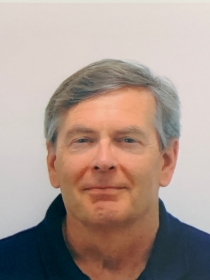
David Merritt was until 2017 a Professor in the School of Physics and Astronomy at the Rochester Institute of Technology. He received his PhD in Astrophysical Sciences from Princeton University and held postdoctoral positions at U. C. Berkeley and the Canadian Institute for Theoretical Astrophysics before coming to RIT. His fields of interest include galaxy dynamics and evolution, supermassive black holes, and computational astrophysics. He is the author of Dynamics and Evolution of Galactic Nuclei (Princeton University Press, 2013) and A Philosophical Approach to MOND (Cambridge University Press, 2020), as well as more than 400 articles in refereed journals. He lives with his wife in Rochester, New York.

Dr. Ewa Pluciennicka is a psychologist, neuroscientist, and founder of PhD Success.
After obtaining a PhD in Cognitive Psychology, followed by post-doctoral experience in human neuroscience, Dr. Pluciennicka created an online platform dedicated to mental health support and wellbeing of PhD candidates, called PhD Success. Through individual consultations, online PhD-support community, and academic training Ewa helps PhD candidates to understand their mental challenges and guides them to a long-lasting change so they get back in charge of their PhD and their life. By combining her passion for helping people, knowledge in psychology and academic experiences Ewa aims to create happier and healthier academic culture.
Social Media:
Website: https://phdsuccess.eu/
Facebook: https://www.facebook.com/PhDSuccess
Linked-In: https://www.linkedin.com/in/ewa-pluciennicka/
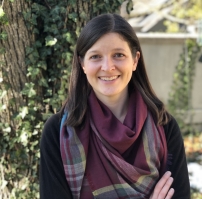
Melissa Jacquart is an Assistant Professor in the Philosophy Department at the University of Cincinnati and Associate Director for the University of Cincinnati's Center for Public Engagement with Science. Her research focuses on epistemological issues in the philosophy of science, specifically on the use of models and computer simulations in astrophysics. Her research also examines the role philosophy can play in general public understanding of science, and in science education. From 2016-2018, Melissa was a postdoctoral researcher in the Philosophy Department at the University of Pennsylvania and at The Carnegie Observatories working on an NSF-funded project Observing the Invisible: A Collaborative Investigation between Astrophysicists and Philosophers (SES-#1557138), which focused on various lines of observational evidence for dark matter. She completed her Ph.D. in Philosophy at the University of Western Ontario, Canada in 2016, and received her B.S. degree in Astronomy-Physics, Physics, and Philosophy from the University of Wisconsin-Madison in 2009. Website: www.melissajacquart.com. Twitter: @mjacquart
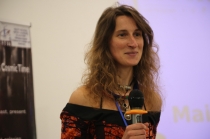
Mirjana Pović is a Serbian-Spanish astrophysicist, working as an assistant professor at the Ethiopian Space Science and Technology Institute (ESSTI), an associate researcher at the Instituto de Astrofísica de Andalucía in Spain, and as an honorary lecturer at Mbarara University of Science and Technology in Uganda. She obtained her PhD in astrophysics in 2010 from the Instituto de Astrofísica de Canarias (Spain). Her main research interests are galaxy formation and evolution, in particular nuclear activity in galaxies, star formation, morphological classification of galaxies, and galaxy clusters. In addition, over more than 10 years, she worked on development in astronomy, science, and education in different parts of Africa, through different projects and initiatives related to research collaborations, education, institutional development, human capacity building, policy development, and women in science. She is a current secretary of the IAU Division C on Education, Outreach and Heritage, African Astronomical Society Science Committee member, co-convener of the Astrophysics and Cosmology Working Group under the African Strategy for Fundamental and Applied Physics, and founder of the African Network of Women in Astronomy. She received several awards and recognitions for her scientific achievements and contribution to society, in particular for her work in Africa, including the 2018 inaugural Nature Research Award for Inspiring Science, and the 2021 inaugural European Astronomical Society Jocelyn Bell Burnell Inspiration Medal. She believes that through education, science, and technology we can combat poverty in the long term and make our world to be a better place for everyone in the future, regardless of where the children are born.
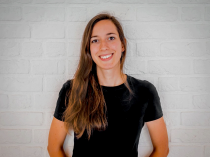
Noémie Aubert Bonn is a post-doctoral researcher currently doing research on research at Hasselt University (Belgium) and Amsterdam University Medical Center (Netherlands). She is originally from Québec (Canada) where she studied cognitive neurosciences and psychiatry, but she quickly became uneasy with academia's pressure to publish and hyper-competitive environments so she decided to change field to address these issues. Noémie recently completed her PhD at Hasselt University during which she explored different stakeholder’s perspectives of the impact that current research assessments and definitions of success in science have on research practices and research integrity. Noémie’s post-doctoral research continues in this direction, mostly looking at different aspects that shape research environments, research assessments, and research practices. At the same time, Noémie is involved in the SOPs4RI project: a European Commission project that aims to create a toolbox to help research institutions and research funders foster better research integrity.
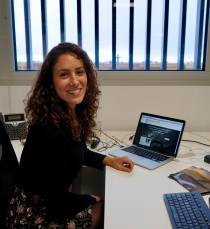
Sandra Benítez Herrera studied Physics at the Complutense University of Madrid. In 2013 she completed her PhD in Cosmology at the Max-Planck Institute for Astrophysics (MPA) in Garching and the Technical University of Munich (TUM). After a brief postdoctoral stay at MPA, she obtained a "Young Talent - Science Without Borders" postdoctoral fellowship at the Physics Institute of the Federal University of Rio de Janeiro. In 2015, she obtained a fellowship from the Brazilian Ministry of Science and Technology as a researcher and science communicator at the Museum of Astronomy and Related Sciences. At the same time she pursued a specialization in popularization of science and technology at the Oswaldo Cruz Foundation in Brazil.
Currently, she works at the Communication and Outreach Department of the Astrophysical Institute of the Canary Islands, as outreach officer for the New Robotic Telescope and support for the PETeR educational project. She is also a Remote Fellow of the IAU - Office of Astronomy for Development working on the "Astronomy for Mental Health" Flagship. In addition, she has been a member of the GalileoMobile voluntary outreach program since 2011, having organized educational initiatives in rural schools in Bolivia, Brazil, Chile, Ecuador, India and Uganda. She currently coordinates the project "Amanar: Under the same sky" for Sahrawi refugees.
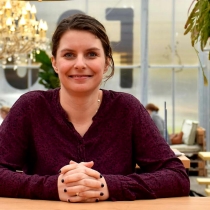
Sanne Feenstra is an Assistant Professor in Organizational Psychology at VU Amsterdam. She completed her PhD thesis (entitled Power in Organizational Life: An investigation of how stable and unstable power affect important organizational leadership outcomes) in 2020 at the University of Groningen. Her research focuses on leadership, power, and the impostor phenomenon. Sanne’s research is regularly quoted in the press and media outlets.
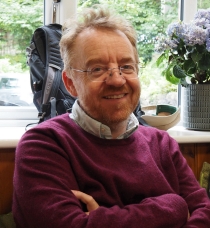
Stephen Curry is a Professor of Structural Biology in the Department of Life Sciences at Imperial College where he also serves as Imperial’s first Assistant Provost for Equality, Diversity and Inclusion. As a researcher he has worked for over three decades on molecular aspects of protein-drug interactions and on the replication of RNA viruses. His transition into the Assistant Provost role in 2017 was the culmination of a burgeoning interest in the social and culture of science. Stephen has written regularly on his Reciprocal Space blog and at the Guardian, covering a wide range of topics including open access, research assessment and science policy.
An active campaigner, Stephen was a founder member of Science is Vital and from 2012-18 he served on the board of the Campaign for Science and Engineering, organizations that make the case for public investment in R&D. He was a member of the UK government-convened group which in 2015 produced the Metric Tide report on the use of metrics in research assessment. He is currently chair of the steering group of the San Francisco Declaration on Research Assessment (DORA) which is actively promoting reform of research assessment worldwide.
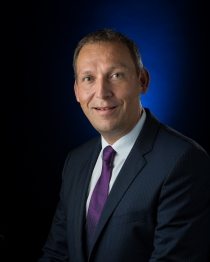
Dr. Thomas Zurbuchen is NASA’s Associate Administrator of Science and in that role is responsible for NASA’s Science program, including Earth Science, Heliophysics, Planetary Science, and Astrophysics with a total budget of approximately $7B/yr. With this program and a diverse set of leaders, he is helping answer some of humanity’s biggest questions: Where did we come from?, Are we alone?, and How does the universe work? Growing up in Switzerland, Dr. Zurbuchen was a keen observer of the natural world from an early age and received a public education with Masters and doctorate of physics degrees from the University of Bern. His science and leadership career focused on solar, heliospheric and planetary instrumentation and data analysis as a professor at the University of Michigan in Ann Arbor, where he taught in Space Science, Aerospace Engineering and Innovation-focused classes. He led several University of Michigan innovation initiatives in both education and research, one of which led to the top-ranked undergraduate entrepreneurship program nationally. He joined NASA in 2016. His honors include induction as a member of the International Academy of Astronautics and the Swiss Academy of Engineering Sciences (SATW), a NASA Outstanding Leadership Medal, and the 2018 Heinrich-Greinacher prize from the University of Bern. Dr. Zurbuchen engages people worldwide with NASA’s work and the inspiration of science. He can be found on Twitter @Dr_ThomasZ.
